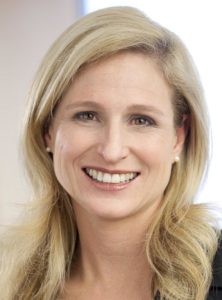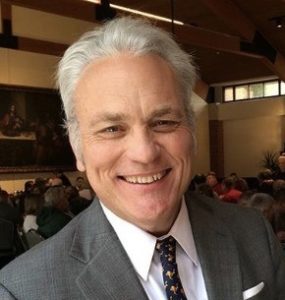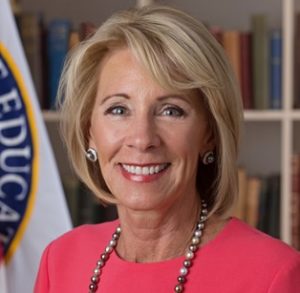For the third time in two weeks, an attempt by Secretary of Education Betsy DeVos to divert federal coronavirus relief funds from public schools to private schools has been stopped by court order.
Federal District Court Judge Dabney L. Friedrich issued a summary judgment Sept. 4, siding with a coalition of educators, school districts and the NAACP, who charged DeVos and the Department of Education had no authority to create their own rules for distributing millions of dollars in education funds created by Congress through the CARES Act.

Tamerlin Godley
“This decision sends a clear signal that Secretary DeVos cannot use illegal means to advance her agenda of funneling scarce public resources to private education, to the detriment of our highest-need students in public schools across the country,” said Tamerlin Godley, a partner at Munger, Tolles & Olson, who represented the plaintiffs. “We are particularly grateful that the court issued this decision quickly so that public school districts do not lose any more time in meeting the urgent needs of their students during this pandemic.”
Charles Foster Johnson, head of the advocacy group Pastors for Children, concurred: “We are grateful the court ruled against the clearly illegal diversion of federal tax dollars through the CARES Act to private schools, essentially a unilaterally enacted private school voucher policy. Just because the Trump Administration Secretary of Education does not believe in public education for all American children, doesn’t mean she can strip money from them to subsidize private options.”

Charles Foster Johnson
DeVos and her agency had issued their own interpretation of how the Congressional funds should be allocated — favoring private schools — but Judge Friedrich said Congress left no such wiggle room. “Congress spoke with clarity and precision. It used mandatory language, cross-referenced a statutory provision by section number, and left no term up to interpretation,” he wrote.
Part of the dispute revolves around whether private schools — including faith-based schools — should receive the relief funds in general or only based on the number of children from low-income families served.
While the Congressional act stipulated that non-public schools may receive funding, it did so by referencing an existing statute that declares: “Expenditures for educational services and other benefits to eligible private school children shall be equal to the proportion of funds allocated to participating school attendance areas based on the number of children from low-income families who attend private schools.”
Yet Devos issued a different interpretation for the Department of Education, saying the relief funds should “serve all non-public school students and teachers without regard to family income, residency, or eligibility based on low achievement.”
Judge Friedrich didn’t buy that. “Congress expressed a clear and unambiguous preference for apportioning funding to private schools based on the number of children from low-income families, even though the Department’s chosen alternative of equal funding was readily available at the time of drafting. In the end, it is difficult to imagine how Congress could have been clearer,” he wrote. “The Department’s arguments to the contrary do not change this straightforward conclusion.”
Further, the judge charged: “The Department found the provision ambiguous and substituted its own ‘expert judgment’ for the kind of policy it deemed equitable.”

Betsy DeVos
As Secretary of Education, DeVos has come under intense criticism for perceived efforts to advance private education by taking funds from public education. Prior to her appointment to this post by President Donald Trump, she was engaged in business and advocacy efforts for charter schools and private schools as alternatives to public education.
Judge Friedrich’s ruling has nationwide effect. DeVos and the Department of Education have not yet said whether they will appeal the ruling further.
Friedrich was the third judge to rule against DeVos’ stance on the coronavirus relief funding.
On Aug. 21, Judge Barbara Rothstein, ruling in Washington State, said the law as written by Congress “could hardly be less ambiguous.” Then she added: “The Department’s convoluted reading essentially creates an ambiguity to justify resolving it, thereby thwarting Congress’s obvious intent.”
On Aug. 27, Judge James Donato, ruling in San Francisco, issued a second injunction, stating that the department used “interpretive jiggery pokery” to create ambiguity where Congress allowed no ambiguity.
Related articles:
Why should private religious schools be exempt from health mandates?
